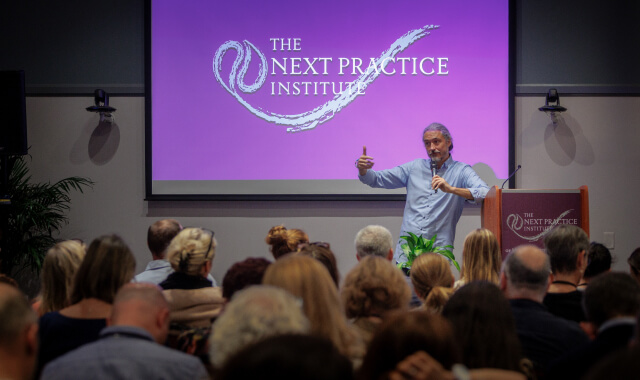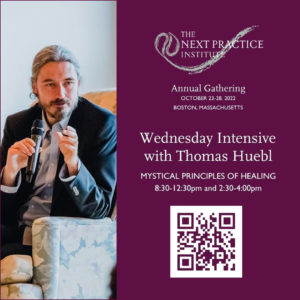 In October 2022, Thomas Hübl taught a workshop at the annual Next Practice Institute meeting in Boston, MA. The session covered principles of healing, grounding, intergenerational trauma work, and personal development, and was live-streamed on Facebook.
In October 2022, Thomas Hübl taught a workshop at the annual Next Practice Institute meeting in Boston, MA. The session covered principles of healing, grounding, intergenerational trauma work, and personal development, and was live-streamed on Facebook.
We’ve shared some excerpts from this workshop here: Further below, the complete recordings are embedded as videos.
What is Trauma?
Trauma can be attachment trauma, it can be caused by an accident, or by an experience that is very difficult to process.
The term alone can trigger feelings of being overwhelmed, because that’s exactly what trauma does. Trauma is an overwhelming experience that you temporarily cannot process, even with the strength and resources you have available. I’m under high stress, which causes fragmentation in my mind, so the “computer” hangs up. These mechanisms come from our nervous systems, which have developed over millions of years. We are sitting in bio-computers of evolution. Every generation of humans has helped to refine these bio-computers, shaping our experiences.
The Three Symptoms of a Trauma-Response
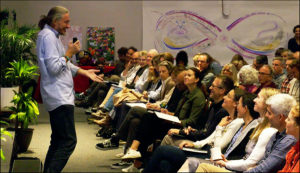 One symptom of a trauma-response is reactivity. People lose control of the way they act toward one another. They’re overly reactive, they’re triggered, and they’re not reacting appropriately to the situation.
One symptom of a trauma-response is reactivity. People lose control of the way they act toward one another. They’re overly reactive, they’re triggered, and they’re not reacting appropriately to the situation.
Another symptom is numbness, or absence. You’re distant, and it feels like the situation has nothing to do with you. “It’s your thing, not mine.” Or, you don’t feel your feelings, and you don’t feel your body, or the other person or people around you. Because when you are absent, your counterpart lives inside you as though they’re in a black hole. You can’t feel your counterpart, so you have to make an effort to somehow grasp the presence of your fellow human being(s).
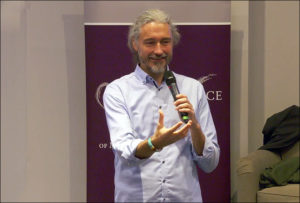
The third symptom is fragmentation. This is akin to throwing a stone at a window. What happens? Cracks and fissures appear in the glass. Many of us are viewing our fellow human beings and our environments through cracked glass. When we repeat the same arguments with our intimate partners, spouses, and children, when we find ourselvesstuck in the same conflicts, there is something stuck. We are caught in the compulsive repetition of trauma. Freud argued that undigested information circulates in our systems and produces these repetitive patterns.
Necessary Updates for My Life
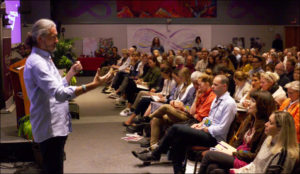 When we look at human development, we always look at two things: the weight or difficulty of the problem, and the person’s resources to deal with the problem.
When we look at human development, we always look at two things: the weight or difficulty of the problem, and the person’s resources to deal with the problem.
If a couple is experiencing the same problem over and over again, it’s clear that they don’t have enough space for development. Because development means continuing to take steps, even if they’re small, or the problem is difficult. If are taking steps, then we are in the actualization of life. Actualization means growth and happiness. One factor for happiness is that you feel that you can update your life. You update your work, you update your relationships, you grow, you become. That’s an important factor for happiness – updating your purpose.
Discovering Collective Trauma
Collective trauma contains a lot of externalized information that is still stuck in the collective unconscious. First, you must realize that collective trauma exists at all. It has a massive systemic impact that is often unconscious. And then you get curious about what that impacts is. How many problems in our society trace back to that? And then you’re interested in taking care of your own part. It doesn’t matter if you was born in the United States, or Vienna, or Germany, or Israel, or Vietnam. You start to look at what your own portion is.
You have to work on your own part first, not on what’s out there. Because that’s the problem, if it’s out there, it’s separate from you. You work on your part, and then you see that you are actually perceiving the field.
For example, there is a shared intelligence when everyone in a room is aware of the group, and the group is aware of its own process. The more fragmentation there is in a room, the less coherence there is, and the less awareness there is.
The Systemic Aspect
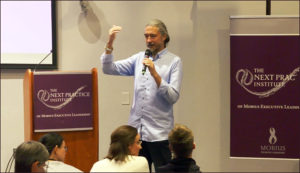 We do our individual parts in the healing work. This is not just about “my” childhood, it goes beyond that. We recognize that the parents who create attachment wounds in their children are also traumatized. And given the fact that they are traumatized, their parents were probably traumatized, as well. So there is a systemic effect, it is not an isolated thing. And the more we become aware of this, the more we see that our ancestors are a flow of data in our bodies, in our emotions, in our minds, and in our society.
We do our individual parts in the healing work. This is not just about “my” childhood, it goes beyond that. We recognize that the parents who create attachment wounds in their children are also traumatized. And given the fact that they are traumatized, their parents were probably traumatized, as well. So there is a systemic effect, it is not an isolated thing. And the more we become aware of this, the more we see that our ancestors are a flow of data in our bodies, in our emotions, in our minds, and in our society.
We call this IAC fluidity. We do our individual (I), our ancestral (A), and our collective (C) healing work because this is a shared system. We fluidize the frozen parts thatappear in ourselves, in our ancestors, and in the culture. By recognizing the trauma that we carry within us, we can interact much more effectively with the collective trauma in society.
Healing Ethical Transgressions
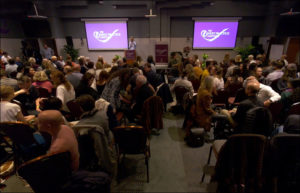 It’s important to talk about restoring the ethical transgression of boundaries. We cannot leave this out. When people have been hurt, the networks of life have shut down, the self-healing mechanism has shut down, and nature has shut down. To restore these things, we have to restore relationships. If we live very privileged lives, we should ask ourselves what we can do to heal the past, and how we can take care of the less privileged parts of society.
It’s important to talk about restoring the ethical transgression of boundaries. We cannot leave this out. When people have been hurt, the networks of life have shut down, the self-healing mechanism has shut down, and nature has shut down. To restore these things, we have to restore relationships. If we live very privileged lives, we should ask ourselves what we can do to heal the past, and how we can take care of the less privileged parts of society.
We don’t have to take care of everything, but we should take responsibility for our part in it, and take an interest in it. The only way to do that is through action. It’s not just about you. And then if you’re doing well, then you should continue your life as before? No. This work changes your life. It has to change your life. And if you don’t want it to, that’s a sign that it scares you. Because individual, intergenerational, and collective trauma work are changing the fabric of our society. They will change the way things are now. And that’s our responsibility. If we are not able to restore human rights in the past, and make up for the ethical transgressions, then we can’t do it now, in the present.
Here is the recording of the morning workshop at the Next Practice Institute on October 26, 2022
Here is the continuation of the workshop in the afternoon
